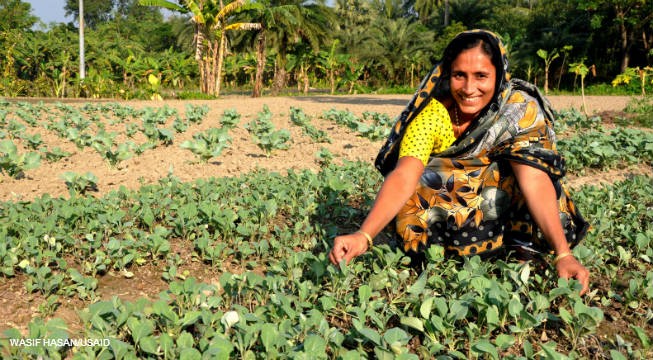
Bangladeshi women face barriers and disadvantages in nearly every aspect of their lives, including access to health services, economic opportunity, political participation, and control of finances. Women’s empowerment is at the core of all USAID’s programs in Bangladesh, where we seek to increase female participation, reduce gender inequality, and raise awareness about the positive impacts of empowering women and girls throughout society.
In health, USAID engages dialogue between men and women to promote joint decision making in family health matters, in general, as well as the healthy timing and spacing of births. USAID also provides counseling for husbands of pregnant women on how to support their wives in having a healthy pregnancy and utilizes mass media to promote women’s equality and girls’ education.
USAID promotes women’s empowerment in agriculture, where we train women farmers to use new technology such as the fertilizer deep placement method, which requires less fertilizer and produces higher yields, to generate greater income to support their families. Our programs also teach women how to culture fish and shrimp to feed their families and sell in local markets.
To address gender-based violence, USAID is working with the Government of Bangladesh to implement the Domestic Violence Prevention and Protection Act of 2010 and train human rights defenders – half of them women – to enforce existing human rights laws, including the Domestic Violence Act. We also support grassroots social protection groups made up of social workers, doctors, religious leaders, teachers, and students to monitor domestic violence in their communities, and help victims access legal channels to settle domestic disputes and seek recourse.
In 2015, USAID programs in Bangladesh
- Trained more than 500,000 women farmers in adopting improved agriculture technologies such as fertilizer deep placement, and higher yielding stress tolerant varieties of seeds, as well as aquaculture practices to raise greater catches of fish and shrimp.
- Helped nearly 150,000 primary school-aged girls improve their reading skills.








Comment
Make a general inquiry or suggest an improvement.